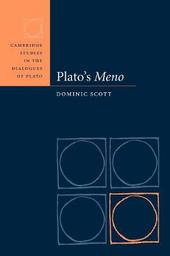
|
Plato's Meno
Paperback / softback
Main Details
Description
Given its brevity, Plato's Meno covers an astonishingly wide array of topics: politics, education, virtue, definition, philosophical method, mathematics, the nature and acquisition of knowledge and immortality. Its treatment of these, though profound, is tantalisingly short, leaving the reader with many unresolved questions. This book confronts the dialogue's many enigmas and attempts to solve them in a way that is both lucid and sympathetic to Plato's philosophy. Reading the dialogue as a whole, it explains how different arguments are related to one another and how the interplay between characters is connected to the philosophical content of the work. In a new departure, this book's exploration focuses primarily on the content and coherence of the dialogue in its own right and not merely in the context of other dialogues, making it required reading for all students of Plato, be they from the world of classics or philosophy.
Author Biography
Dominic Scott is Senior Lecturer in Philosophy at the University of Cambridge and a Fellow of Clare College. His previous publications include Recollection and Experience: Plato's Theory of Learning and its Successors (Cambridge University Press, 1995).
Reviews'Dominic Scott's new monograph on Plato's Meno is a tour de force. Readers of Plato in general, and this extensively-mined dialogue in particular, will be aware of how high the standards have now been set for writing about Plato as both literary genius and philosophical pioneer, by Taylor, Cornford, Vlastos and others. They will be correspondingly impressed by how successfully Scott's beautifully written work equals and sometimes surpasses these standards, while admirably avoiding both the fanciful and the anachronistic.' Journal of Hellenic Studies
|